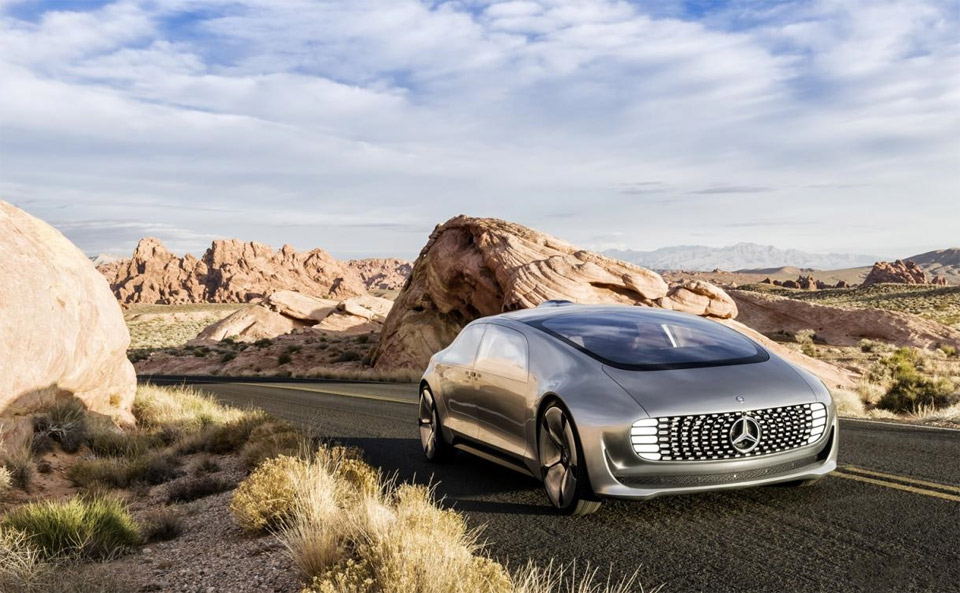Here's How Close We Are to Driverless Cars
By:

The future of the automobile arrived when a sleek, futuristic Mercedes Benz drove itself onto a stage last week at the International Consumer Electronics Show (CES) in Las Vegas. The crowd glimpsed at the driverless car's four white, modern-looking swivel chairs that let passengers chat, read, or even nap while they are escorted from place to place by the computerized car. Touch screen controllers mounted on the inner side panels can control temperature, host video conferences, or play movies. But the car, however tangible and market-ready it seemed in front of last week's crowd, is still just in its concept phase.
At CES, where cars and new car technology are featured heavily, Audi, Toyota, Volkswagen, and BMW all had impressive exhibits. Audi's Piloted Driving technology, which lives somewhere between cruise control and fully automated handling, was put to the test when the company let an A7 Sportback drive itself on the 550 miles of highway between San Francisco and Las Vegas. Volkswagen showcased strides in smart phone-car integration, and Hyundai, like BMW, touted smartwatch-controlled commands. Even standalone tech and communication companies like LG, AT&T, and Samsung focused attention on projects tied to smart cars.
BMW invited journalists to try and crash their collision-avoiding, self-parking cars into obstacles on a rooftop:
But the logic driving the development of smart cars–to take progressively more control away from the driver–seems contrary to a tenet at the foundation of auto advertising–to give the driver the most control possible. A future where cars cart us around independently poses some real–and frankly obvious–problems. Outside of the fear of autonomous robots someday extinguishing the human race, the thought of relinquishing control over the cause of an estimated 1.3 million global deaths annually isn't an encouraging one. And what happens when the inevitable circuit fries, or the radar in charge of calculating bumper-to-bumper distance malfunctions and fails to tell the car to brake in time? The problems some see is the dangers of unequivocal trust in machines. The more trust we place in technology, the more susceptible we become to its inevitable failures. But with a phone, failure merely means a dropped call. But with a car, it's a life-threatening collision.
If the presence of smart and driverless cars at this year's CES was any indication, people are generally excited about the future manufacturers have envisioned. And they should be. Smarter cars, some say, could mean safer roads, less vehicles, and a lower impact on the environment. Given that "driver error" accounts for around 90% of accidents, smart cars have the potential to prevent some of them. Others point out that given young drivers' propensity to use their phones while driving, smart cars are in some ways tailored for a new generation of perennially distracted commuters. Driverless cars also have the potential to benefit those who otherwise rely on assistance or public transportation to run errands, like the visually impaired subject of a video on Google's driverless technology:
The future of driving is a drastically changing landscape, with one great invention of an earlier century, automobiles, mingling with another–computers. And while wariness is always healthy, so too is acknowledging the benefits of innovation. According to reports, autonomous vehicles could save the US economy an annual average of $1.3 trillion, and at the same time reduce the number of vehicles we need to about one-third of the current number. And with predicted higher gas millage and a shift to hydrogen reliance, as Toyota promised by releasing fuel cell patents, we could soon be living in a safer, sounder, and smarter world.
